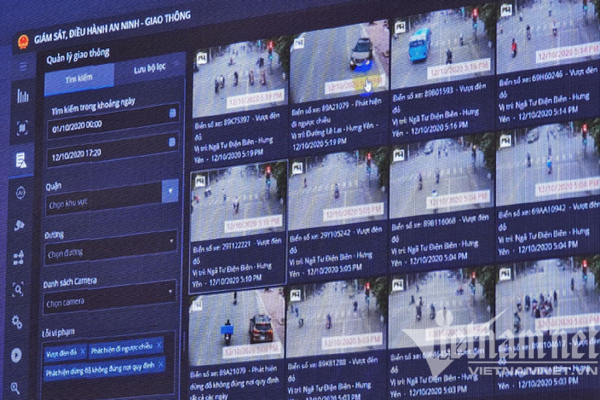
Security and traffic monitoring and management systems are among important parts of a smart city.
Speaking at a recent seminar with the theme "Developing smart cities in the process of urbanization associated with industrialization and modernization to 2030, with a vision to 2045," Dr. Nguyen Thanh Phong, Deputy Head of the Central Economic Commission, said that with increasing urbanization, the development of smart cities in Vietnam is seen as the right direction for cities.
Smart city development is one of the important contents included in Resolution No. 52 on a number of guidelines and policies on participation in the 4th Industrial Revolution.
Vietnam aims to form smart urban chains in the northern, southern and central key economic regions, gradually connecting to the smart city network in the region and the world.
This issue has received great attention from the Government. The Prime Minister has approved the Project on Development of Sustainable Smart Cities in Vietnam for the period 2018-2025, with a vision to 2030.
To date, 41 out of 63 provinces and centrally-run cities in Vietnam have developed projects on smart cities of various scale.
However, according to Dr. Phong, the development of smart cities is still difficult due to the inadequate perception of smart cities.
Moreover, one of Vietnam's problems is that standards and regulations on smart urban planning and technical infrastructure and smart architecture have not been fully issued. The participation of economic sectors in this process is also limited.
The deployment of smart cities in Vietnam is still fragmented and lacks specificity for each city. Resources for smart city development, including capital and human resources, are also limited.
Suggestions on how to develop smart cities
Duong Cong Duc, Director of Smart City Solutions of Viettel Business Solutions Corporation, said one of the key factors to help localities successfully deploy a smart city project is choosing the right partner. So far, 30 provinces and cities have signed cooperation agreements with Viettel to build a smart city.
Duc said that the advantage of Vietnam is the high consensus on smart city development from the central to local levels. However, the challenge of Vietnam is investment capital, access to the latest technologies and solving problems.
To build a smart city in an economical and efficient way, provinces and cities should use local resources in the most optimal way, and apply technology to give accurate and appropriate analysis that meets and addresses the needs of each citizen.
Localities should spend 1-2% of their investment capital to build smart city infrastructure. In addition, attention should be paid to training people so that they are capable of enjoying the fruits of smart city development, Duc said.
Dr. Nguyen Duc Kien, Deputy Director of Product Strategy of VNPT Group, said that smart operation centers will promote digital transformation in Vietnam. When the latest indicators are sent to the leaders, this will create pressure forcing lower-level officials to perform better.
According to a representative of VNPT Group, in the process of building smart cities in Vietnam, the necessary condition is the determination and serious direction of leaders at all levels, besides the continuity of data flow.


